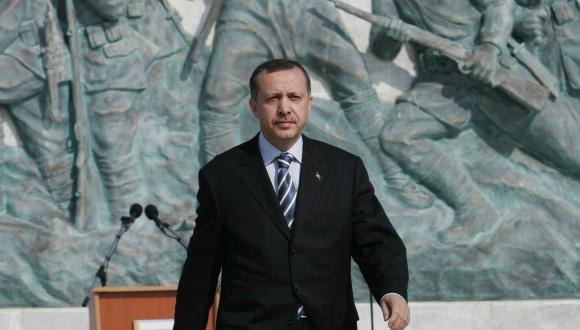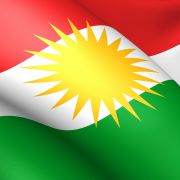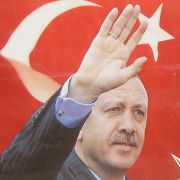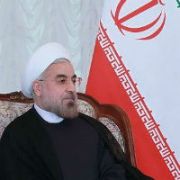Welcome to the "New Turkey"

Prime Minister of Turkey Recep Tayyip Erdoğan was elected to the presidency on August 10, after defeating the heterogeneous alliance that had rallied around the candidacy of Ekmeleddin İhsanoğlu. Erdoğan won a majority of 51.79% of the vote, and thus managed to avoid a second round of elections. Interestingly, SNS played a crucial role in both the election campaign and the in aftermath of the elections. Many Turkish analysts predicted Erdoğan’s victory, in light of the broad support that he received on social networking sites, while his supporters celebrated his victory there as well. In the spirit of the constitutional role of the Turkish President as the “supreme commander of the Turkish state,” analysts displayed the slogan “Commander-in-Chief Recep Tayyip Erdoğan.”[i]
In accordance with state protocol, immediately after the victory celebrations in the capital, Erdoğan visited the grave of the founder of the Republic, Mustafa Kemal Atatürk. In the spirit of tradition, Erdoğan was asked to write in the memorial book at the mausoleum. “The relationship between the people and its President was truncated after your death,” Erdoğan wrote. He added that, “Today, with my election to the presidency by the people, the break is ended. Today a ‘new Turkey’ was born ...”[ii]
Erdoğan’s words are very important for a number of reasons. First, they indicate that, even at such a key moment, he refrained from attacking Atatürk, who is highly respected in Turkey’s collective memory. Instead, Erdoğan preferred to criticize Atatürk’s successors. Second, the slogan “New Turkey,” though used during Erdoğan’s previous campaign for prime minister, was now reinforced by his overwhelming victory in the presidential election. Furthermore, the location itself was especially weighted with symbolism. After all, Atatürk’s tomb represents the very heart of the “old Turkey.” In these circumstances, the slogan also echoed on SNS. His supporters called him “the founder of the new Turkey” and “our leader R. T. Erdoğan,”[iii] while his Kemalist opponents angrily retorted that “the Turkish Republic has only one founder, Atatürk.” [iv]
Erdoğan’s somewhat pretentious claim to be the founder of the “New Turkey,” and the resultant SNS controversy, both point to the importance of charismatic leadership in Turkish culture. If during the First Republic an entire nation united around Atatürk, who was cloaked with the image of an invincible leader on the battlefield, it is today gathered around Erdoğan, who is emerging as an invincible leader in the political arena. In recent years, Erdoğan managed to successfully extricate himself from a series of challenges, including the Ergenekon affair (2007-2013), the riots in Gezi Park (2013), and a number of embarrassing corruption scandals at the highest levels (2013). Erdoğan, together with his supporters, were able to frame these as an attempted coup planned by the collusion of the reactionary military, secularists with international backing, and lastly his old ally Fethullah Gülen. His sweeping victory in the presidential election is therefore proof that the Turkish people choose to believe their leader, so that he could continue to lead.
Further evidence of the institutionalization of Erdoğan’s power in Turkey is the imminent dedication of a new presidential residence, called the White Palace (Ak Saray). The old presidential residence, Çankaya Köşkü, has served as the residence of Atatürk and all subsequent presidents of Turkey. Therefore the new palace represents an additional marginalization of the Kemalist legacy and ‘old Turkey’; it is tangible evidence of this shift.
Another important political development that occupied the SNS is the selection of Foreign Minister Ahmet Davutoğlu as prime minister, probably at the expense of the incumbent, President Abdullah Gül. This does not surprise commentators, who have noted a deep rift between Erdoğan and Gül since the Gezi Park riots. Erdoğan’s harsh behavior during the riots and his ongoing conflict with Fethullah Gülen collided with the conciliatory line taken by Gül. On the other hand, Erdoğan’s actions had the implicit support of Davutoğlu, who spoke strongly against any phenomenon that would destabilize Erdoğan’s rule.
Moreover, Davutoğlu is an academic, with significant influence on the educated young people in AKP, who are considered the party’s future. He is popular because of his support for the lower classes and is esteemed by the public for his tough foreign policy vis-à-vis Cairo, Damascus and Jerusalem. All these factors played a role in Davutoğlu’s selection. Meanwhile, Erdoğan’s supporters were quick to embrace and praise the new prime minister, and hailed him as “the teacher” (Hoca).[v]
Erdogan’s victory in his campaign for the presidency is both significant and symbolic, and the appointment of Davutoğlu without significant opposition within the party or other public arenas is proof that most Turks are united around their apparently invincible leader. Rallying around a strong leader is an expression of contemporary Turkish political culture; this reflects disgust and perhaps even trauma caused by the prevailing political and economic instability of the 1990s. That instability has produced a longing for a strong leader and more centralized power. Indeed, most of the parties that participated in the coalition prior to the ascent of AKP in 2002, have been punished for voters at the ballot box. The mood of the Turkish street shows, therefore, that Turkey is in the midst of a centralization process with ramifications at once for the political, social, media and economic arenas.
[i] BaşKomutan Recep Tayyip Erdoğan
[ii] Erdoğan’dan Anıtkabir’de önemli mesaj, Sabah, August 28, 2014
http://www.sabah.com.tr/Gundem/2014/08/28/cumhurbaskani-erdogan-anitkabirde
[Accessed in: September 11, 2014]
[iii] Yeni Türkiye’nin kurucusu Önderimiz...RTErdoğan
[iv] Tek Reisi Cumhur vardır! O’da: “Gazi Mustafa Kemal Atatürk
[v] Biz sana inanıyoruz Davutoğlu[v]






